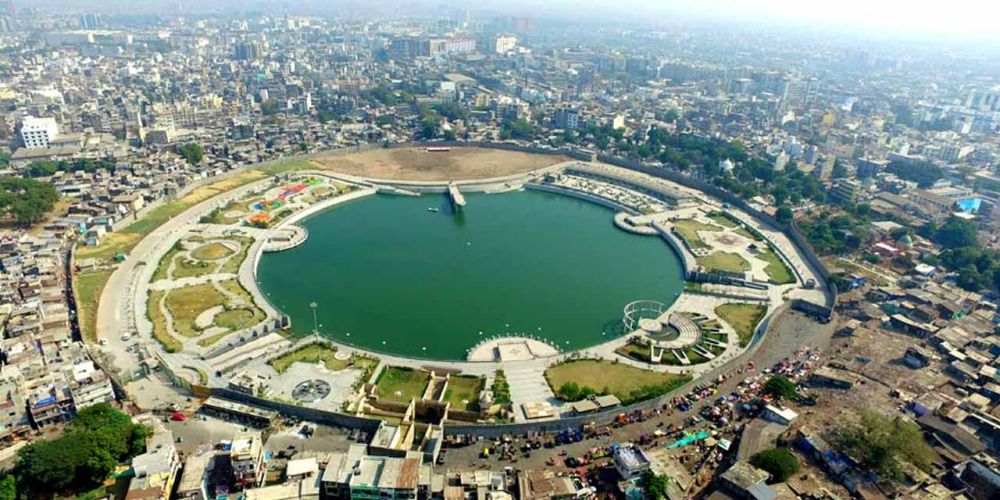

Gopi Talav is a small lake situated in the bustling city of Surat, Gujarat. This historic lake holds a significant place in the heart of Surat's cultural and historical landscape. It was built approximately 500 years ago in the 1510s by Malik Gopi, who was an affluent merchant and a close aide of the Sultan of Gujarat. Originally, it was created as a water reservoir to fulfill the water requirements of the city in those times.
Over the years, Gopi Talav had witnessed numerous phases, from serving as a source of water, a center of leisure activities during the British era, to facing gradual neglect leading to its deterioration. However, the Surat Municipal Corporation embarked upon an ambitious project to revitalize this ancient waterbody. In 2012, the rejuvenation and re-development of Gopi Talav had transformed it into a vibrant tourist spot, blending modern amenities with historical charm.
The transformation of Gopi Talav from a neglected pond into a modern-day recreational space is an example of urban conservation and tourism development. Post its revival, the area around Gopi Talav features beautiful landscaping, boating facilities, food stalls, children's play areas, and an amphitheater, making it a popular spot among both locals and tourists.
A significant addition to the Gopi Talav is the 'Dutch Garden', which reflects upon the trade relations the Surat port shared with the Dutch in the pre-independence era. This aspect of the lake aids in teaching visitors about the rich mercantile history of Surat.
One cannot talk about the history of tourism at Gopi Talav without mentioning the iconic ‘Surat Castle' or ‘Old Fort of Surat’ which overlooks the lake. A visit to this historical monument complements the experience of Gopi Talav.
The Lake Garden area, a theme park developed alongside the lake featuring replicas of the Seven Wonders of the World, has seen Gopi Talav emerge as a contemporary tourist destination with an educational twist, something uncommon in historic sites. This modern addition stands as a testament to Surat's adaptability and commitment to creating interactive tourist experiences.
In recent years, Surat has focused on sustainable tourism practices, recognizing the need to balance urban development with heritage conservation. As a city known for its diamond cutting and polishing industry, tourism diversification has become a strategic focus. Places like Gopi Talav serve as multi-use destinations catering to cultural enrichment, education, and leisure.
Destination branding is another recent trend in Surat's tourism scenario. Gopi Talav forms an integral part of Surat's image as a city that marries the past with the present. The city aims to position itself as a modern metropolis that values its roots and heritage. Engaging local communities and stakeholders in tourism activities at Gopi Talav has been crucial in ensuring that development is inclusive and beneficial for the city's residents.
Additionally, with the increased digital penetration, virtual tours and online experiences have become popular. Prospective tourists can now get a glimpse of what Gopi Talav has to offer through virtual walkthroughs, making the destination accessible to a broader audience.